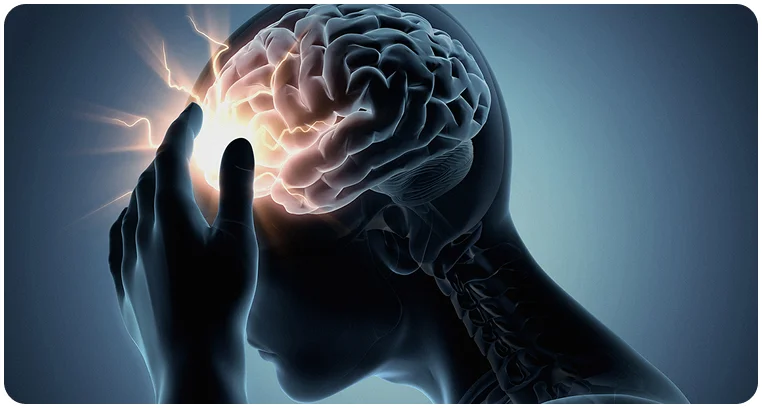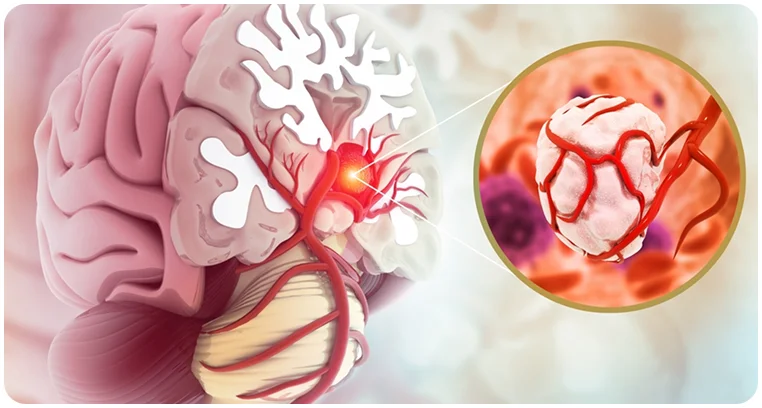Get Expert Seizure Treatment in Delhi
Personalised Care, Compassionate Support

What Are Seizures?
A seizure is a sudden, uncontrolled electrical disturbance in the brain. It can cause changes in behaviour, movements, feelings, or even levels of consciousness.
While the experience varies for each person, one thing remains true: seizures deserve serious attention and expert treatment.
Getting the proper seizure treatment in Delhi can help reduce episodes, improve quality of life, and address the root cause.

Types of Seizures
Not all seizures look the same. Here are the most common types:
Focal Seizures (also called partial seizures) affect one brain area and may cause twitching, altered senses, or confusion.
Generalised Seizures: Involve both sides of the brain and may cause loss of consciousness or full-body shaking.
Absence Seizures: Often seen in children, brief lapses in awareness that can look like daydreaming.
Tonic-Clonic Seizures: What most people imagine—a loss of consciousness and violent muscle contractions.
Nocturnal Seizures: Occur during sleep and can disrupt rest or go unnoticed.
Dr. Shishir Pandey will help identify your specific seizure type for accurate, effective care.
Common Causes and Triggers of Seizures
Seizures can have many triggers; identifying them is key to successful treatment.
Here are common causes of seizures and possible triggers:

Head trauma or brain injury

Genetic factors

Brain infections (like meningitis)

Stroke or brain tumour

Lack of sleep

Missed medications

High fever (especially in children)

Flashing lights or visual stimuli

Stress or emotional strain
Understanding your triggers helps in building a custom treatment plan.
Symptoms Patients May Notice
Not all seizures look dramatic—some are subtle. Watch out for these common seizure symptoms:
Sudden confusion or blank stares
Jerking movements of arms or legs
Loss of consciousness or awareness
Strange sensations (taste, smell, or feeling)
Sudden fear or anxiety without reason
Lip-smacking, fumbling, or repeated movements
Temporary memory gaps
If you’ve noticed any of these signs in yourself or a loved one, it’s time to consult a neurologist in Delhi.
Diagnosis and Treatment Options For Seizures in Delhi

At Dr. Shishir Pandey’s Neurology Clinic, we begin with a thorough consultation and advanced testing:
- Neurological examination
- EEG (Electroencephalogram) to check brain activity
- MRI or CT scan for brain imaging
- Blood tests to check for underlying causes
Once we identify the type and cause of your seizures, treatment may include:
- Anti-seizure medications (carefully selected and monitored)
- Lifestyle modifications to avoid triggers
- Dietary therapies (like the ketogenic diet in specific cases)
- Surgical options (in rare drug-resistant cases)
Dr. Pandey tailors each plan to the patient’s needs, ensuring you feel heard, supported, and safe throughout the journey.
Why Choose Dr. Shishir Pandey for Seizure Treatment in Delhi?
Here’s why patients trust Dr. Pandey:
Experienced neurologist
Trusted for treating complex and hard-to-manage seizures
Calm, and easily approachable
Convenient location
Uses advanced diagnostics with a personal touch
Clear communication and ongoing support you can rely on

Take the First Step Toward Seizure-Free Living
If you or your loved one is struggling with seizures, don’t wait. Relief, answers, and support are just a call away.
Book your consultation with Dr. Shishir Pandey for expert seizure treatment in Delhi today.
FAQs About Seizure Treatment in Delhi
The best treatment depends on your seizure type and cause. Our clinic uses a combination of medications, lifestyle advice, and close monitoring for optimal results.
Costs vary depending on the diagnostic tests, medications, and duration of care. During your consultation, we offer transparent pricing and affordable care options.
Absolutely. Neurologists like Dr. Shishir Pandey specialise in diagnosing and managing all types of seizures with evidence-based care.
Some patients see improvement within weeks, while others may need medication adjustments over a few months. Regular follow-ups are key.
With the right treatment, many patients achieve complete seizure control. Some types are lifelong but manageable with expert care.
You may need an EEG, MRI, blood tests, or other assessments to find the cause and guide your treatment plan.
Yes—triggers like sleep deprivation, missed medications, and stress should be avoided. Dr. Pandey will guide you on lifestyle changes.
